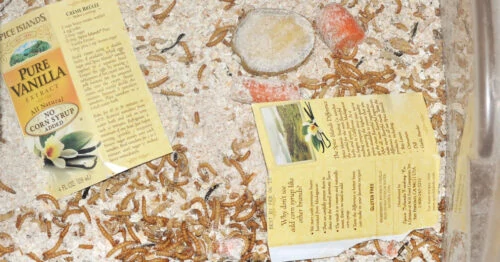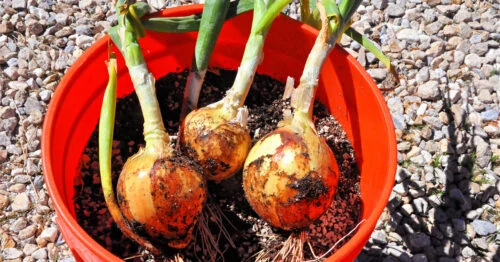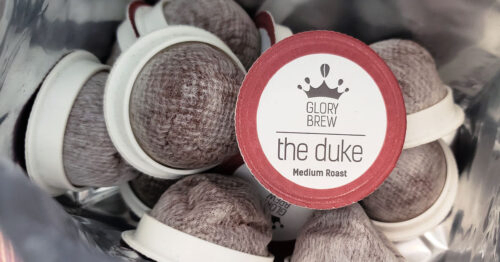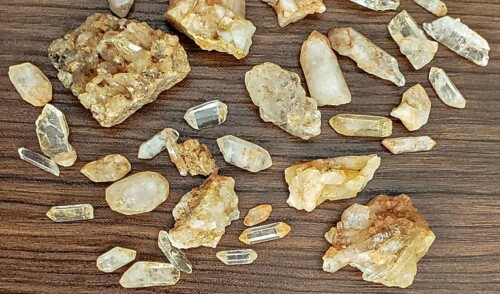This comprehensive guide discusses the crucial role of having good worms in the garden, highlighting the benefits they offer to soil quality and plant growth, the types of beneficial worms, how to create a worm-friendly environment and how to maintain a healthy worm population.

Gardening enthusiasts often call worms the ‘good guys’ of garden soil. Rightly so, as these wriggling workers significantly enhance soil structure, improve plant growth, and contribute to a sustainable environment.
But which are the ‘best worms’ for your garden, and how do you attract and maintain them? Let’s dive into this fertile topic.
The Role of Worms in the Garden
Worms provide several benefits to your garden soil. As they burrow, they create channels for water and air, enhancing soil aeration and water retention. This activity is crucial for plant roots, enabling them to penetrate deeper and access vital nutrients.
Earthworm castings, or ‘worm poop’, are an organic fertilizer rich in essential plant nutrients. These castings enhance the soil’s capacity to retain these nutrients, contributing to healthy plants. Worms also break down organic matter, turning kitchen scraps, leaf litter and grass clippings into valuable organic material that enriches the soil.
Different Types of Good Worms for Garden Soil
Several species of earthworms can improve your garden soil, but a few stars shine brighter.
Red Wigglers
Red Wigglers (Eisenia fetida), often found in compost piles, are surface dwellers. They feed on decaying organic waste on the soil’s surface, making them perfect for compost bins and surface mulch.
Nightcrawlers
European Nightcrawlers (Lumbricus terrestris) and their North American cousins, the Canadian Nightcrawlers, are another beneficial type. Known as ‘anecic worms’, they dig deep, permanent burrows, improving soil aeration and structure. They drag leaf litter and other organic matter from the soil surface down into their burrows, enriching the topsoil and subsoil alike.
Top Strategies to Attract Worms To Your Garden
These techniques can not only help attract worms to your garden but also create a more favorable environment for them to thrive and multiply.
Organic Matter
Worms feed on organic matter such as leaves, straw, grass clippings and compost. Add these to your garden regularly to provide a food source for worms.
Mulch
Use a thick layer of organic mulch like straw, leaves, or wood chips. This helps to retain soil moisture and provides a habitat and food source for worms.
Compost
Start a compost pile or bin in or near your garden. Composting not only provides rich soil for your garden, but the decomposing organic matter attracts worms.
Moisture
Worms need a moist environment. Regular watering can help attract and keep worms, but be careful not to overwater, as too much water can actually drown the worms.
Avoid Chemicals
Avoid using synthetic fertilizers, pesticides and herbicides. These can harm or kill worms and other beneficial soil organisms.
Limit Tilling
As much as possible, avoid tilling your soil. Tilling can kill worms and disrupts the worm burrows and natural soil construction. It’s particularly damaging to deep-dwelling worms like night crawlers. Consider using a raised bed or implementing ‘no-dig’ gardening methods for the best results.
Plant Cover Crops
Cover crops like clover and alfalfa can help improve soil structure, add nutrients to the soil, and provide organic matter for worms to eat.
Create a Worm Tower
This is a small vertical compost bin that goes directly into the ground within your garden bed. You put food scraps into it and the worms come and eat and then spread the compost out into your garden bed.
Buying Worms for Your Garden
If your worm population is sparse or non-existent, purchasing worms can be a quick fix. Ensure you buy the right worm species for your needs – Red Wiggler Worms for composting, and Nightcrawlers for soil structure.
Local worm farm shops provide native worms accustomed to your local conditions, increasing the chances of them thriving in your vegetable garden. If you don’t have a local gardening center you trust reputable online sources like Uncle Jim’s Worm Farm are another great source.

Maintaining a Healthy Worm Population in Your Garden
Once you’ve introduced worms to your garden, the easiest way to keep them happy is to maintain their ideal living conditions. Regularly add organic material to your garden from your compost bin to provide a constant food source. Continue avoiding harmful pesticides and excessive soil disturbance.
Signs of a healthy worm population include abundant worm casts on the soil surface, increased plant health and the presence of worms under piles of leaves or within compost heaps.
When it comes to boosting soil quality and plant growth, nothing beats these tireless underground allies. From the compost-loving Red Wigglers to the deep-burrowing Nightcrawlers, these good worms for garden truly are the ‘good guys’ we need in our home gardens. With some simple practices and careful attention, you can foster a thriving worm community, ensuring your garden remains fertile and productive through the seasons, even in the cold temperatures of the winter months.
Keep in mind that worms are not just “use and forget” additions to your garden. Their ongoing health and productivity require that you continue to provide them with a source of food. Organic waste such as vegetable scraps from your kitchen, grass clippings from your lawn, or fallen leaves can all serve as excellent food for your worm population. Worms, particularly composting worms like Red Wigglers, break down this waste into a form that plants can more easily absorb, leading to healthier, more vigorous plants.
Also, remember to avoid practices that can harm these beneficial creatures. Using chemical pesticides or fertilizers can be detrimental to worms, killing them off or driving them away from your garden. Similarly, excessive tilling of the soil can destroy worm burrows, disrupt their feeding, and directly harm the worms.
The presence of worms in your garden is an excellent sign of a healthy, thriving ecosystem. By attracting and maintaining a robust worm population, you’re not only improving the health of your garden but also contributing to the larger ecosystem in your area. And for those bad guys — the pests and pathogens that can harm your plants — a garden full of active, healthy worms can be a strong line of defense.
Add Good Worms to Your Garden Today
To sum it up, employing worms’ fantastic skills in your garden is both a practical and eco-friendly approach to gardening. By understanding the needs and behaviors of these beneficial creatures, you can create a garden that’s not only productive but also self-sustaining and in harmony with nature.
In the world of gardening, these good worms for the garden play the role of the silent heroes, the ones working tirelessly under the surface of the soil to create a healthy, thriving environment above. Whether you’re just beginning your gardening journey or you’re a seasoned pro, inviting worms into your garden is one of the best ways to promote lush, vibrant plant growth and truly fertile soil.
So, why wait? Start today, and your plants — and the earth — will thank you!
And if you have backyard chickens to go with your garden, be sure to check out my Guide to Raising Mealworms for Chickens next!








